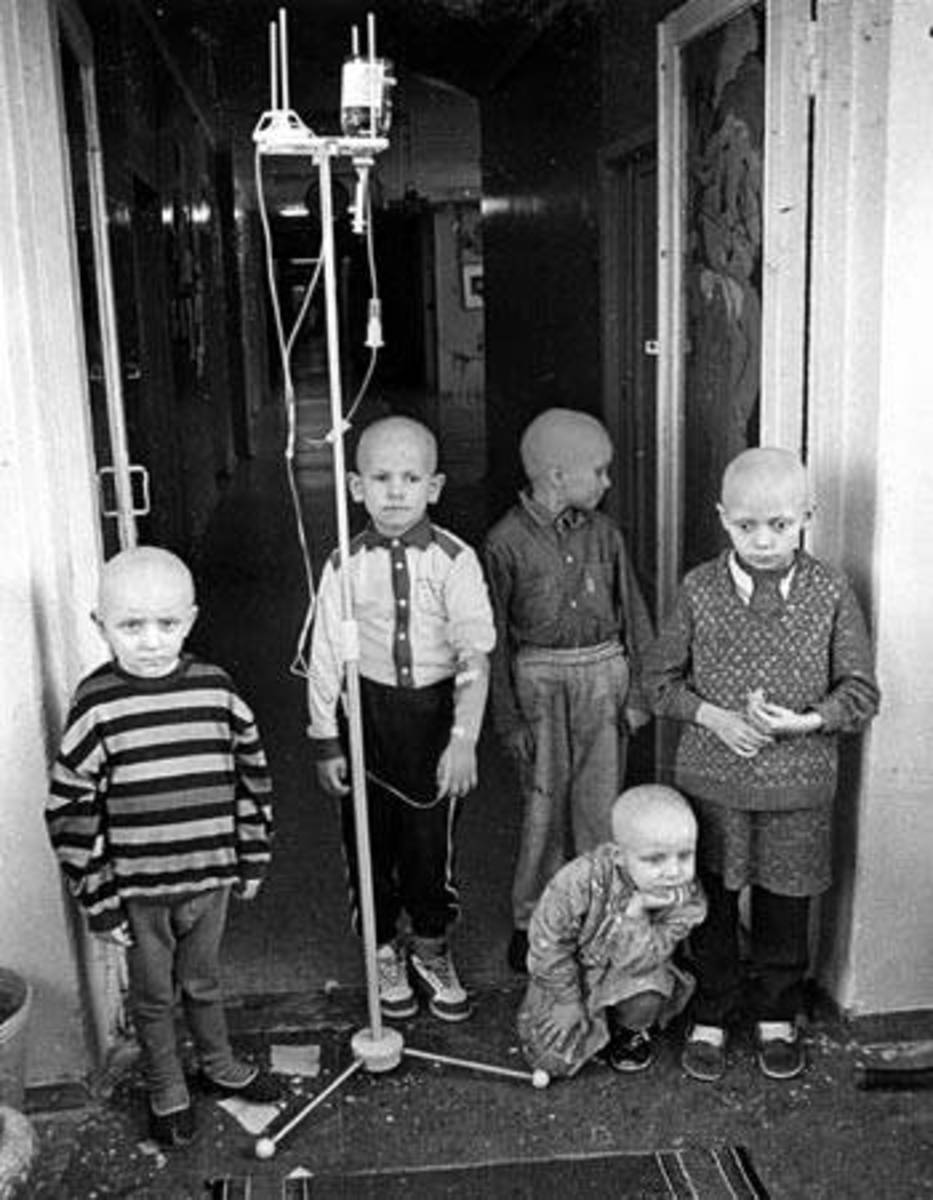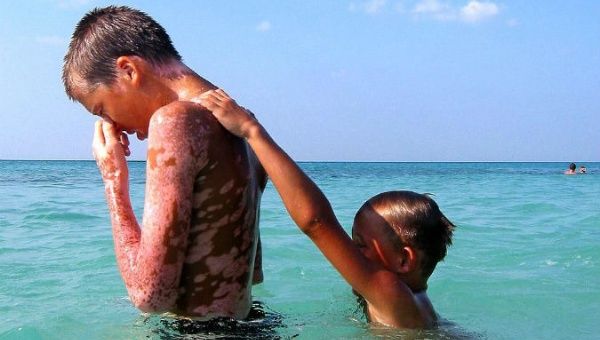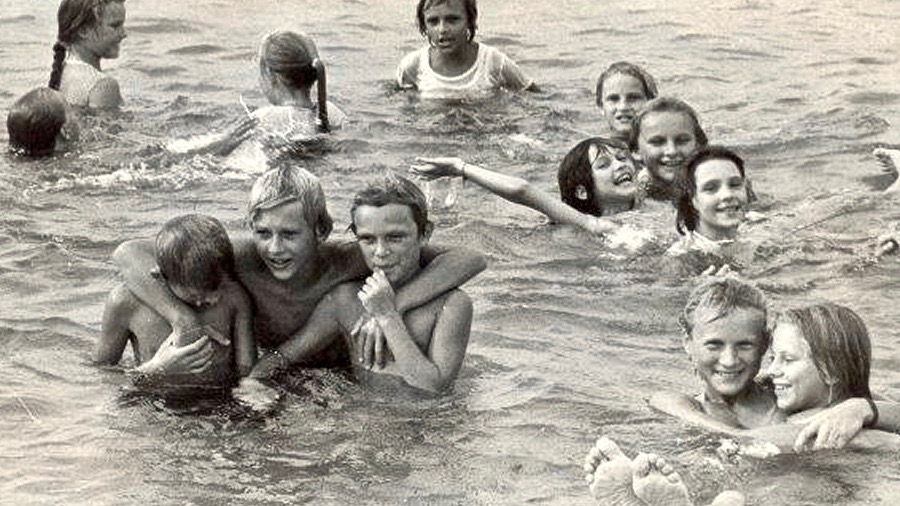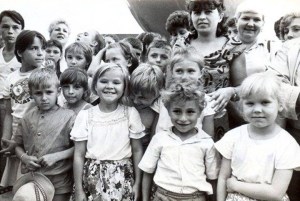Latin America
Related: About this forumWhy Cuba is leading the way on early childhood development
Why Cuba is leading the way on early childhood development
But it’s not just the Cuban government which has stepped up – families are also a major reason why young children are being so well supported.
Richard Paterson, Cuba director for the international charity CARE, said the government has made health and education national priorities.
“The low infant mortality rate is clear evidence of the attention the authorities have put on health and early child development in particular,” he said.
“CARE does not programme specifically in ECD. But through our work and interactions with various local counterparts, with rural and urban families and with authorities at different levels, we have been able to appreciate the commitment and the reach of programmes such as the Casas de Abuelos and the Circulos Infantiles (early childhood development) and others.
“Clearly the government puts a high priority on child development, starting even at the pre-natal stage when pregnant mothers are visited at their homes on a weekly basis. In some instances, even more frequently.”
A UNICEF publication last year documented the Cuban ECD system’s implementation strategies and most significant results.
The report Early Childhood Development in Cuba (pdf: https://www.unicef.org/cuba/cu_resources_earlychildhooddevelopmentlibro.pdf ) said: “Family is the centrepiece of the Cuban system. Cuba strives to equip families with the necessary skills and knowledge to create stimulating, caring and safe home environments.
“Day care centres involve families through monthly group activities, while family doctors provide information on appropriate nutrition and preventing injuries in the home.
“Families are seen as embedded in communities, which share responsibility for children alongside state service providers.”
Much more ...
https://theirworld.org/news/why-cuba-is-leading-way-on-early-childhood-development/
Judi Lynn
(163,980 posts)When I started researching Cuba, using available internet resources, around 1999, or so, I quickly saw amazing programs for children of every age, and leaving absolutely no one out. I read about and saw photos of amazing programs for blind children, and even dance therapy for emotionally handicapped children, bringing so many of them into a world where they seemed to flourish whereas they had formerly been deeply withdrawn.
I recall pouring over pages of photos of children who had been stricken and damaged by the nuclear explosion at Chernobyl, as they were flown to Cuba, housed near the ocean, given medical treatment, special attention by medical and educational people, taken routinely to get plenty of healing sunlight, play in the Caribbean waves, start regrowing their hair, and returning to health. The program was entirely successful, so many children regained their childhoods and wellness.
I will add some photos to this post a little later.
Thank you, Marcus IM! Wonderful information most US readers haven't seen, of course! ![]()
,
Judi Lynn
(163,980 posts)This article is more than 14 years old
Young victims continue to receive treatment in Cuba two decades after Ukrainian nuclear disaster
Andres Schipani in Tarara
Thu 2 Jul 2009 13.51 EDT
Eleven-year-old Olga enters the beach house in flip-flops, her hair still wet from a dip in the Caribbean. "I really like it here," she says. "The food is great, the beach is awesome. I made some fantastic friends."
A typical child's reaction to a beach holiday, perhaps – only this is no ordinary seaside break. Olga is a Ukrainian "Chernobyl child", in Cuba not for a holiday but to undergo intensive medical treatment with some of the country's best doctors. She goes to school along with 180 other Ukrainian children. "I miss some bits of my home town," she muses. "But I don't ever want to leave."
Olga is one of more than 18,000 Ukrainian children to have been treated over the years at the Tarara facility near the Cuban capital, Havana. The programme was set up in 1990 to treat the victims of the world's most devastating nuclear accident four years earlier.
A steady procession of children with bald heads, skin lesions and other malformations have since benefited from splashing in the clear blue Caribbean waters. Twenty-three years after Chernobyl, the Cuban programme is still going strong. Remarkably, children born years after the disaster still suffer physical consequences of the meltdown that irradiated large parts of Ukraine and Belarus; equally remarkably, despite isolation and economic miasma, Cuba still manages to tend to them.
More:
https://www.theguardian.com/world/2009/jul/02/cuba-chernobyl-health-children
~ ~ ~







ETC., ETC., ETC.
~ ~ ~
The Little Known Story/History of the Chernobyl Children Cured in Cuba
ENVIRONMENT, ENERGY, BALKANS AND EASTERN EUROPE, LATIN AMERICA AND THE CARIBBEAN, SCIENCE, COOPS-COOPERATION-SHARING, HEALTH, HISTORY, 8 Jul 2019
Miguel Faure Polloni | Resumen – TRANSCEND Media Service
8 Jun 2019 – While the new four part HBO documentary about the 1986 nuclear power plant meltdown in Chernobyl is being viewed by millions a related story of human dignity and solidarity that was omitted also needs to be told.
The disaster that started on April 26, 1986, at reactor No. 4 of the Vladimir Ilyich Lenin nuclear power station in Ukraine, resulted in a wide array of painful radioactive related conditions to thousands of children living in the area where the nuclear disaster took place.
In 1990, the Cuban Government headed by Fidel Castro decided to aid the victims by taking the town of Tarara, an ex seaside resort for the country’s bourgeoisie and military elite during the Batista dictatorship, in eastern Havana and turning it into a real hospital and treatment city. In addition to the clinical facilities for those affected – which included two hospitals and some 20 medical branches in the professional category – the small city had a theatre, several schools and recreational areas stretching out over almost two kilometres of crystal-clear beaches.
The Tarará pediatric hospital treated more than 25,000 children, accompanied by their families, who were victims of the tragedy from Ukraine, Russia and Belarus, most of them had thyroid cancer and leukemia since they had been exposed to iodine-131 or caesium-137. They also suffered from deformities, muscular atrophy, skin disease, and stomach problems. Along with all that most of the children suffered from post traumatic stress caused by experiencing the nuclear horror.
Cuban doctors Julio Medina, who coordinated the program for years, and Omar Garcia, researcher at the Center for Radiation Protection and Hygiene, divided the patients into four groups. It entailed staying on the Island between 45 days and several months depending on the seriousness of their condition. Cuban doctors, teachers and social workers took care of the Chernobyl children at the facility from 1990 to 2011.
More:
https://www.transcend.org/tms/2019/07/the-little-known-story-history-of-the-chernobyl-children-cured-in-cuba/

70sEraVet
(4,998 posts)so much pain and terror. Beyond words.
Judi Lynn
(163,980 posts)by Helen Yaffe, 30 March 2020
Just weeks ago, in late February 2020, US Democratic Senator Bernie Sanders was vilified by the US establishment for acknowledging education and healthcare achievements in revolutionary Cuba.
Now, as the SARS-CoV-2 pandemic sweeps the globe, the island’s medical prowess is back in the spotlight, first because the Chinese National Health Commission listed the Cuban anti-viral drug Interferon alfa-2b among the treatments it is using for Covid-19 patients. Effective and and safe in the therapy of viral diseases including Hepatitis B and C, shingles, HIV-Aids and dengue, the Cuban anti-viral drug has shown some promise in China and the island has now received requests for the product from 45 countries.
Then, on 21 March a 53-strong Cuban medical brigade arrived in Lombardy, Italy, at that time the epicentre of the pandemic, to assist local healthcare authorities. While images spilled out over social media, little was said in mainstream outlets. The medics were members of Cuba’s Henry Reeve Contingent, which received a World Health Organisation (WHO) Public Health Prize in 2017 in recognition for providing free emergency medical aid. In addition to Italy, Cuba sent medical specialists to 37 of the 59 countries in which their healthcare workers were already operating, to treat Covid-19 cases.
Desperate to undermine the Cuban lesson in solidarity, on 24 March the US State Department tweeted that the Cuban motive was ‘to make up the money it lost when countries stopped participating in the abusive program.’ The object of its ire? Medical programmes under which Cuban personnel are contracted by host governments to provide healthcare that is free at the point of delivery to poor and underserved populations overseas. Reaping the benefits of socialist state investments in education and health, Cuban medical exports have emerged in the context of a punitive and extra-territorial 60-year US blockade that prevents Cuba pursuing normal international trade. The contracts provide revenue to the Cuban state, as well as higher salaries to participants. Under pressure from the Trump administration, Brazil, Ecuador and Bolivia have ended contracts, in order to eliminate a vital source of revenues for Cuba, leaving millions of people without healthcare. The strategy of sabotaging Cuban medical exports originates in the Bush-era ‘Medical Parole Programme’, which encouraged Cubans to abandon missions in return for US citizenship, and was not ended by Obama until his final days in office in January 2017.
More:
https://mondediplo.com/outsidein/cuban-medical-covid
malaise
(290,151 posts)Objective folks know Cuba and Cubans understand the importance of healthcare and education
Marcus IM
(3,001 posts)Cubans don't create the infrastructure they have at the direction of the Gov't, rather, with the gov't.
Their govt's (the three levels of elected assemblies) are them.
I mean, the Castro's didn't train the doctors in Cuba. Nor did they train the educators of their very good universal education system.
Cubans did it. Together. United.
They wanted these things - childcare and development, good schools for their kids, and as good a healthcare system for all as they can muster - and, they have them, because they worked hard on creating them and still do.
Americans? ![]()
![]()
malaise
(290,151 posts)Worked via the different levels.
Truth is that there is much more citizen participation at the local level.
What’s more more than a few developed country governments send people to a Cuba to study how their very cost effective medical system works.
Over the decades we have received and receive significant assistance from Cuban doctors and nurses. Right now there are Cuban eye doctors providing a variety of surgeries for folks on our island.
Marcus IM
(3,001 posts)As you might know, I am a retired DDS.
I go to Cuba often.
When I go I always bring dental supplies, repair parts, ultrasound and portable digital imaging machines and tools.
Shipping is super expensive - due to the US's extraterritorial sanctions on shippers who do biz in/with Cuba.
I can't say much more about what I do when there, but, it's voluntary.
One won't find more dedicated medical professionals than one finds in Cuba. Period.
![]()
70sEraVet
(4,998 posts)just think of the opportunities OUR country has squandered to care for our own citizens!
Cuba could have been a great friend to the US, but we made it into a political bogeyman.
Time to change all that.
![]()
Marcus IM
(3,001 posts)Cuba has always sought normalization with the US.
But, American intransigence and cold war era knee jerking.
Political pandering to the most extreme elements of the Cuban "exile" community has harmed both regular everyday Cubans in Cuba and Americans here.
Thanks for your thoughtful post.
![]()
malaise
(290,151 posts)My way or the highway - all imperialists are arrogant